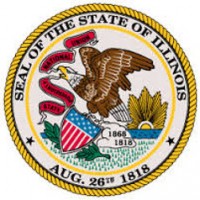Illinois has 7th highest sales tax in the country
- Details
- Published on Tuesday, 07 February 2017 16:02
From ILLINOIS NEWS NETWORK
Illinois is among the top 10 most expensive sales tax states in the country, according to Washington D.C.-based Tax Foundation.
Tax Foundation Economist Nicole Kaeding said researchers reviewed state and local sales taxes for all the states and found Illinois to be the seventh highest. When combining the state’s 6.25 percent sales tax with the average local sales tax, the sales tax is 8.64 percent.
All of Illinois’ neighbors are ranked lower than Illinois, something Kaeding says could lead to tax tourism.
“In my home state of Indiana, there was always conversations about whether you would go to buy something in Illinois or buy it in Indiana or perhaps go to Ohio or Kentucky, and I’m sure there are many individuals in Illinois that make those same sort of decisions,” she said.
Missouri ranked at No. 14, Indiana at No. 21, Iowa at No. 27, and Kentucky ranked No. 38. Wisconsin was Illinois’ lowest ranked sales tax neighbor at No. 43.
This report comes at a time when some state senators are proposing sales taxes on certain services as part of the package of bills to end Illinois 19-month-long budget impasse.
Kaeding said service taxes could broaden the base and lower rates, but cautioned against taxing business-to-business services.
“If they do, what’s the problem? The big problem is that it results in higher costs for consumers,” she said. “So we want to make sure that those exemptions are properly included in any sales tax base expansion.”
Kaeding said ultimately it’s not about what’s taxed, but about how the money is spent. “I think we can find stories both in Illinois and in every other state and also the national level of where governments are not spending money as wisely as they should,” she said.
Illinois hasn’t had a budget for 19 months, and 90 percent of government functions are basically on autopilot with court orders, consent decrees and continuing appropriation, spending more than the state is taking in.
Illinois is among the top 10 most expensive sales tax states in the country, according to Washington D.C.-based Tax Foundation.
Tax Foundation Economist Nicole Kaeding said researchers reviewed state and local sales taxes for all the states and found Illinois to be the seventh highest. When combining the state’s 6.25 percent sales tax with the average local sales tax, the sales tax is 8.64 percent.
All of Illinois’ neighbors are ranked lower than Illinois, something Kaeding says could lead to tax tourism.
“In my home state of Indiana, there was always conversations about whether you would go to buy something in Illinois or buy it in Indiana or perhaps go to Ohio or Kentucky, and I’m sure there are many individuals in Illinois that make those same sort of decisions,” she said.
Missouri ranked at No. 14, Indiana at No. 21, Iowa at No. 27, and Kentucky ranked No. 38. Wisconsin was Illinois’ lowest ranked sales tax neighbor at No. 43.
This report comes at a time when some state senators are proposing sales taxes on certain services as part of the package of bills to end Illinois 19-month-long budget impasse.
Kaeding said service taxes could broaden the base and lower rates, but cautioned against taxing business-to-business services.
“If they do, what’s the problem? The big problem is that it results in higher costs for consumers,” she said. “So we want to make sure that those exemptions are properly included in any sales tax base expansion.”
Kaeding said ultimately it’s not about what’s taxed, but about how the money is spent. “I think we can find stories both in Illinois and in every other state and also the national level of where governments are not spending money as wisely as they should,” she said.
Illinois hasn’t had a budget for 19 months, and 90 percent of government functions are basically on autopilot with court orders, consent decrees and continuing appropriation, spending more than the state is taking in.


















































